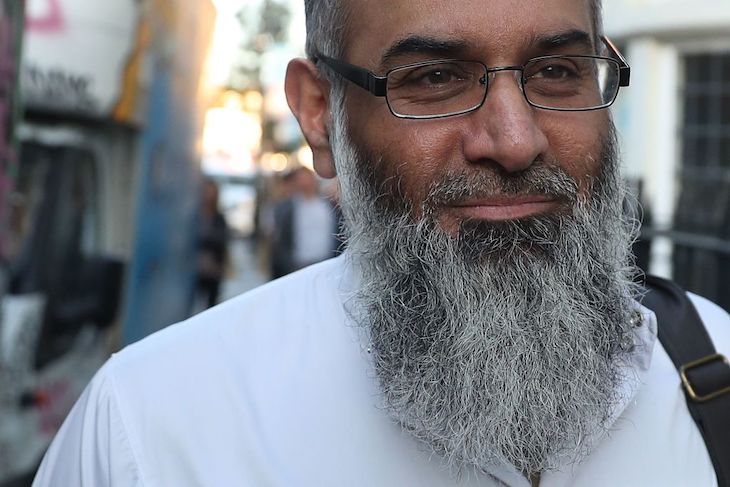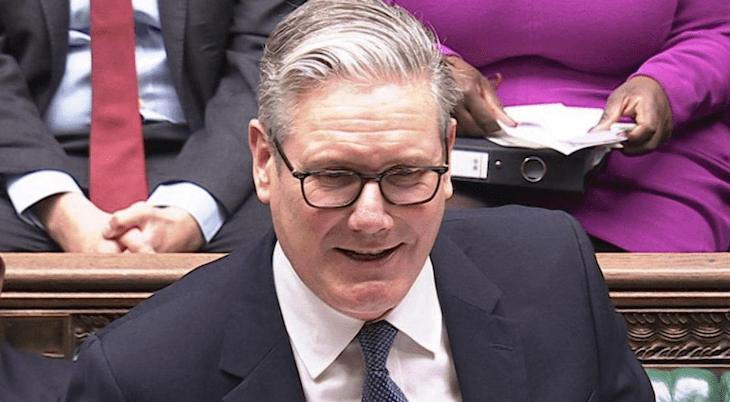Radical preacher Anjem Choudary – the Bexley-born godfather of homegrown Islamist terrorism in modern Britain – has finally been imprisoned for life. Found guilty of directing the banned group al-Muhajiroun after an international investigation involving Scotland Yard, the MI5, the New York Police Department (NYPD) and Canadian police, Choudary was given a minimum term of 28 years at Woolwich Crown Court this week. The jail sentence means the 57-year-old will not be eligible for release until he is at least 85 years old. It’s unlikely he will ever leave prison alive.
Choudary doesn’t speak for British Muslims like me
This has been a long time coming for Choudary. Counter-terrorism sources have linked the radical Islamist preacher with dozens of jihadists, including Michael Adebolajo who was involved in the Islamist terror murder of Drummer Lee Rigby in Woolwich in 2013. Choudary’s imprisonment is something to celebrate.
For years, Choudary – who helped establish al-Muhajiroun alongside Syrian Islamist Omar Bakri Muhammad in 1996 – has played a cat-and-mouse effort with the authorities. He used his legal training to good effect to stay narrowly within the bounds of the law. But after the emergence of Isis in 2014, he slipped up by swearing allegiance to the terror group. He was sent to prison in 2016 but after being released two years later he made another mistake. An undercover investigation proved that the long-banned al-Muhajiroun network that he headed was still operating. Choudary failed to realise that his online talks promoting jihadist ideology had been infiltrated by security agencies. He was caught bang to rights. Choudary appeared shocked and he rocked on his feet in the dock when he was sentenced this week.
The popularity of Choudary – who apparently enjoyed his university days as a beer-drinking, drug-taking womaniser – on the British Islamist circuit grew in the years after 9/11. Choudary appeared at various protests, declaring to reporters that anyone who insulted the message of Prophet Muhammad should be subjected to capital punishment.
Choudary was at the heart of the notorious ‘Butchers of Basra’ demonstrations in my hometown of Luton. Soldiers from the 2nd Battalion The Royal Anglian Regiment were told to go to hell as they paraded through the town. ‘Whenever the troops come, we will be demonstrating,’ Choudary said at the time. It was a moment of shame for Luton.
The al-Muhajiroun network was an active force in Luton. An undercover police operation revealed that talks took place in the town which heaped praise on Islamist terror attacks around the world. Children were among those in attendance.
As a Lutonian who remains proud of his British, Bangladeshi, and Muslim identity, I’m pleased that Choudary is now in prison for a long time. He will go down as one of the great enemies of national security and social cohesion in modern Britain. But parts of the media have questions to answer over why they handed Choudary – who appeared on programmes such as BBC Newsnight – a platform. Sometimes sunlight is the best disinfectant, of course. But the extent to which he featured on terrestrial TV risked providing him with the respectability of being a Muslim community leader at a time when social tensions were at fever pitch. Choudary didn’t speak for anti-Islamist British Muslims like me. It was painful to see him being allowed to spout his views so publicly.
Choudary may be back in prison, but is that enough? A prolific and charming radicalising influence being thrown back into Britain’s overcrowded prison estate – at a time that the new Labour government is looking to release criminals early to ease such pressures – is a potential recipe for disaster. Adding fuel to the fire of Islamist extremism – which remains a key terror threat in modern Britain – is the industrial-scale radicalisation in jails where jihadists have intimidated overworked and demoralised guards.
It is of the utmost importance that Choudary, who has had far too much freedom on British soil to spread his hateful extremist ideas over decades, is no longer able to do this. He must be silenced. In jail – where he is likely to live out the rest of his days – Choudary must be separated from his fellow inmates and isolated to the point that he is no longer the radicalising threat he has been for so long.







Comments